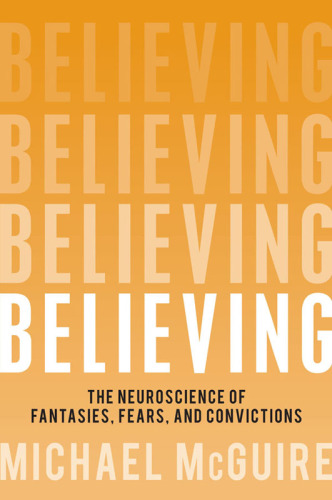
Believing
The Neuroscience of Fantasies, Fears, and Convictions
کتاب های مرتبط
- اطلاعات
- نقد و بررسی
- دیدگاه کاربران
نقد و بررسی

July 8, 2013
When individuals consider their beliefs, they often do so only in spiritual or metaphysical terms. But few pause to consider the myriad biological, psychological, sociological, and cultural factors that can subconsciously influence such beliefs—not to mention that even objective experiences like seeing are inextricably linked to belief systems. In this wide-ranging discussion, McGuire (coauthor of God’s Brain), a professor emeritus of psychiatry at UCLA, explores the surprising science behind beliefs regarding everything from religion to science to perception. The stubborn brain, McGuire explains, has a tendency to ignore evidence it deems threatening to long-held beliefs and to select data that will bulwark an existing belief. Through analyses of the current neuroscience and numerous anecdotes from the author’s time in the field with Australian Aboriginals, Eastern Caribbean islanders, and more, McGuire unpacks his topic in a consistently accessible and intriguing manner (despite an overlong introductory explanation of his decision to examine beliefs), and offers up some interesting conclusions. Agent: Beverley Slopen, Beverley Slopen Agency (Canada).

September 15, 2013
Our thoughts and actions are overwhelmingly influenced by our beliefs, regardless of whether those beliefs are supported by external evidence, writes McGuire (emeritus, psychiatry & behavioral sciences, Univ. of California, Los Angeles). He promises to reveal how the brain gives rise to principles and narrows the perception of any divide between beliefs and evidence. His work, however, contains little neuroscientific information. Instead, it is a largely personal contemplation of how humans evolved to generate and hold on to myriad beliefs about themselves and the world. Not only does the book fail to tackle the neurobiology underlying belief formation and persistence, its meandering and loose structure makes it difficult for the reader to discern its intended main points. Moreover, with the inclusion of seemingly unrelated personal anecdotes from the author, the book at times comes across as a narrative of the text's creation rather than an insightful exploration into how beliefs become ingrained in the brain. VERDICT The title promises more than the text delivers, and readers should consider alternative choices, such as Michael Shermer's The Believing Brain or the more challenging Memory, Brain, and Belief, edited by Daniel L. Schacter and Elaine Scarry.--Katherine G. Akers, Univ. of Michigan Libs., Ann Arbor
Copyright 2013 Library Journal, LLC Used with permission.

























دیدگاه کاربران